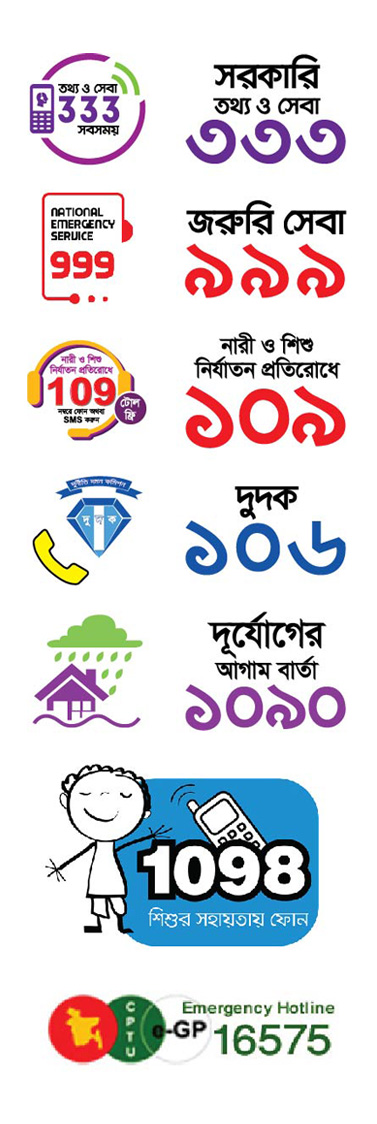Project Background
The Smallholder Agricultural Competitiveness Project (SACP) is being implemented by the Ministry of Agriculture of the Government of the People’s Republic of Bangladesh, with joint funding from the Government and the International Fund for Agricultural Development (IFAD). The project targets the improvement of the livelihoods of smallholder and marginal farmers living in the coastal regions of southern Bangladesh. It is being executed through four implementing agencies: DAE (lead agency), DAM, BARI, and BADC.
The International Fund for Agricultural Development (IFAD) has been working in Bangladesh’s agriculture and rural development sectors for the past 40 years. The SACP is a model integrated project contributing to the adaptation of high-value crop cultivation in climate-vulnerable coastal areas by promoting the innovation, adoption, and application of improved technologies. Additionally, the project endeavors to make agriculture a profitable profession for farmers by enhancing crop production, applying sustainable post-harvest management technologies, and promoting value addition and marketing of agricultural products through practical models of public-private partnerships.
SACP is currently being implemented across 250 unions in 30 upazilas of 11 districts in southern Bangladesh.
The project indicators include:
- Benefitting at least 250,000 rural households, or 1.4 million people, thus enhancing the competitiveness of high-value crop production and marketing among one-fifth of Bangladesh’s population through smallholder agriculture.
- Accelerating the pace of sustainable production and improving women’s Minimum Dietary Diversity for Women (MDDW) scores.
- Improving farmers’ income and livelihoods through demand-driven productive investments, crop diversification, and enhanced market connectivity.
- Promoting the research, extension, and adaptation of new and existing technologies suited to agro-ecological constraints.
Building on the knowledge and experience gained from the SACP project, an expanded initiative titled RAINS will be implemented in 60 upazilas across 14 districts from July 2023 to June 2026. This project will be executed by four agencies: DAE, DAM, FAO, and GAIN.
Agriculture is the main driving force of Bangladesh’s economy. The SACP-RAINS project, operating under the Department of Agricultural Extension (DAE), is aimed at eliminating hunger, malnutrition, and poverty through the development of agriculture. It is expected that this project will play a significant role in building a poverty-free, self-reliant, and prosperous Bangladesh. SACP-RAINS is a large-scale government initiative that targets rural socio-economic development, nutrition improvement, and poverty alleviation.
Bangladesh is one of the most densely populated and developing countries in the world. While the country has already achieved self-sufficiency in major staple food production (particularly rice), it continues to strive for self-reliance in high-value crop production. Due to its geographic location, seasonal climate, and temperate natural environment, Bangladesh offers ample opportunity for the production of a variety of seasonal high-value crops—such as different fruits, nutrient-rich vegetables, pulse crops (like mung beans), oilseed crops (such as sesame, sunflower, and peanuts), and maize.
Due to the lack of access to modern technological knowledge, information, capital, storage, processing, and proper marketing, crop production is often considered unprofitable by farmers. As a result, farmers—particularly smallholder, marginal, and tenant farmers—are gradually losing interest in cultivation, despite having the potential and opportunities. This is happening even though there is a high demand for these high-value crops, because production and supply remain misaligned. Consequently, market prices fluctuate, and the resulting price hikes disrupt the cost of living.
If high-value crop production increases and the supply chain improves, it would be possible to control abnormal price fluctuations and contribute to strengthening the country’s economic structure.
With encouragement, access to finance, training, and other supporting services, production of high-value crops can be increased. This would enhance food security, improve agricultural standards, and enable dietary diversification. Through expanded cultivation of high-value crops, better use of cultivable fallow land (including homestead yards), proper storage, and efficient marketing, farmers’ income can be increased, and employment opportunities created for women and youth, thereby contributing to poverty reduction.
To achieve these goals, the Government of Bangladesh (GoB), with the support of the foreign donor agency IFAD (through RPL and DPG)*, is implementing a project titled SACP-RAINS (Smallholder Agricultural Competitiveness Project – Resilient Agriculture for Improved Nutrition and Sustainability) with a total budget of Tk 285.60 crore, focused on the production and marketing of high-value, nutrition-rich crops, to be completed by June 2026.
The project areas are climate-vulnerable regions of Bangladesh. Through this project, smallholder and marginal farmers in coastal, char (riverine islands), and Barind regions will be encouraged to cultivate high-value crops, thereby gaining economic resilience. The project emphasizes expanding climate-resilient crop cultivation in southern coastal regions, Barind, and char areas, increasing production and productivity, introducing realistic modern methods and technologies, developing post-harvest management, improving value chain systems, and ensuring optimal use of surface and groundwater. This will not only improve the economic capacity of smallholder and marginal farmers but also help them better cope with the impacts of climate change.
Since the inception of its country program in Bangladesh, IFAD has worked in close collaboration with several government agencies and has developed effective partnerships with development organizations. Through direct collaboration with the Ministry of Agriculture, IFAD, along with relevant implementing agencies, is executing the SACP-RAINS project in line with the Government of Bangladesh’s strategic master plan, aimed at transforming subsistence agriculture into commercial farming.
Project Overview at a Glance
Initiating Ministry: Ministry of Agriculture
Implementing Agencies: 1. Department of Agricultural Extension (DAE) – Lead Agency
2. Department of Agricultural Marketing (DAM)
3. Technical Assistance Partner – Food and Agriculture Organization (FAO)
4. GAIN – Global Alliance for Improved Nutrition
Estimated Total Budget of the RAINS Project (in crore BDT):
| Funding Source | Type | Approved Estimated Budget (crore BDT |
| GoB | Grant | 81.60 |
| RPG & DPG (RAINS) | Reimbursable Project Loan & Direct Project Grant | 204.00 |
| Total Project Cost | GoB + RPG & DPG | 285.60 |
* RPL = Reimbursable Project Loan, DPG = Direct Project Grant
Foreign Assistance:
| Development Partner | Funding Type | Financial Guarantee Information |
| IFAD & GAFSP | Loan and Grant | Approved by IFAD and formalized through a Financial Agreement with ERD |
Project Duration:
- 2nd Revision
- Start: July 2018
- End: June 2026
Project Objective:
To enhance the productivity of demand-driven, high-value, and nutrition-rich crops under changing climate conditions; to introduce crop diversification and marketing systems that increase farmers’ income; to create self-employment opportunities for women and youth; and to improve the overall standard of living.
The project also addresses Gender Mainstreaming and Social Inclusion in critical areas such as:
- Nutrition
- Food safety
- Youth engagement
- Adaptation strategies for those vulnerable to climate change impacts
3. Physical Scope of Component-Based Project Activities:
Project Components:
- Nutrition-Sensitive Agricultural Production
- Market Linkage and Off-Farm Diversification
- Policy, Project Management, Planning, Implementation, and Coordination
Key Focus Areas of the Project:
- Organizing smallholder, marginal, and tenant farmers, with special focus on women and youth, and encouraging them to cultivate high-value, nutrition-rich crops
- Creating capital from members’ own resources and ensuring their proper utilization
- Providing human resource development and technical support for high-value crop cultivation
- Improving socio-economic conditions and reducing poverty
- Providing support for preservation, processing, and marketing
- Establishing market linkages and developing agricultural entrepreneurs
- Ensuring gender equity, economic empowerment of rural women, and greater participation in agriculture
Component 1:
(a) Increasing production of high-value crops and the use of sustainable technologies:
1.1 – Assessment of high-value crops and formation of farmer groups
1.2 – Enhancing production of demand-driven crops and conducting market-oriented research
1.3 – Strengthening institutional capacity for research and extension
(b) Nutrition-sensitive agricultural production:
1.1 – Enhancing the capacity of producer groups and linking them to producer organizations
1.2 – Implementing “Building Back Better” activities at the farm level
1.3 – Climate-smart water management
1.4 – Implementing “Building Back Better” actions in the agricultural support system
Component 2:
(a) Processing and marketing of high-value crops:
2.1 – Developing market linkages
2.2 – Increasing investment in post-harvest handling and processing of high-value crops
2.3 – Enhancing food and nutrition security
(b) Market linkages and off-farm diversification:
2.1 – Establishing marketing arrangements
2.2 – Promoting e-commerce, branding, and certification
2.3 – Facilitating off-farm income generation and entrepreneurship development, especially among women and youth
Component 3:
Climate-Resilient Surface Water Management
3.1 – Sustainable management, drainage, conservation, and utilization of surface water
3.2 – Institutional support for capacity development
Technical Assistance (TA) Component – FAO:
(a) Technical support to implementing agencies for successful project execution:
- Conducting Training of Trainers (ToT) programs and follow-ups
- Supporting the development of effective monitoring and evaluation systems
- Assisting in value chain and other market-related research
(b) Technical Assistance (TA) by FAO under the RAINS Project for Components 1 & 2:
- Supporting capacity building of producer farmer groups
- Promoting household-level nutrition improvements at the farmer level
- Advancing modern agricultural technologies, mechanization, and digitalization
- Supporting climate-smart on-farm water management
- Assisting demand-driven agricultural extension and marketing







